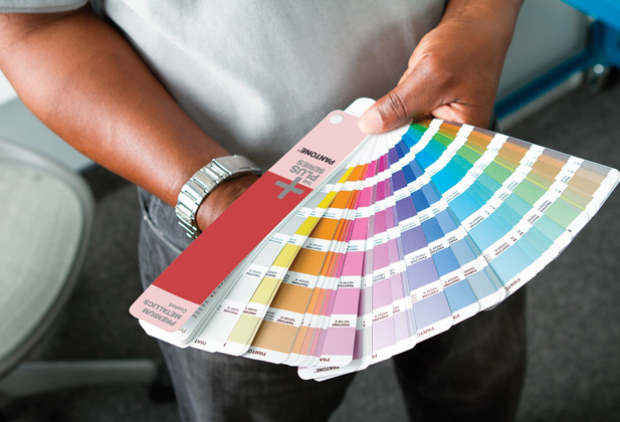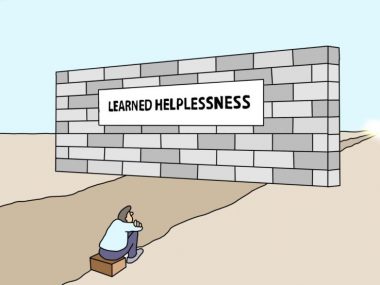It was at one of the printing events in Ibadan that I noted that the Yoruba word for Printing (“ise tewe tewe” which literally means a trade of reproducing what’s on paper) has become obsolete, I said it ought to be “ise te gbogbo nka”, the trade of reproducing everything. I was coming from the angle of the possibility of not only printing books but also printing on flex and SAV as described by large format printing, printing on clothes and fabric as described in textile printing or even reproduction of 3D images as it speaks to 3D printing.
In printing, what you see is what you get means there are no hidden or unknown traits or characteristics beyond what is immediately apparent in a given printing exercise. If I am to break this down further it is easy to remain a conventional printer and refuse to appreciate the benefits of digital printing, yet in a similar manner you might jump in as a new entrant using the digital as a foot hold and believe digital is all that is to printing, and at the same time another person will embrace hybrid- combining digital with conventional. As they say there are many routes to a destination and as we are never at the same level, like a flowing stream of water we will always find our level. The main question is what do you see in printing?
Today, we basically want to look at other possibilities in the printing sector. Someone might think I want to speak today about 3D printing as a sector to look at as it seemingly sounds like beyond ink on that paper, but no I am still worried about the high power consumption of those 3D equipment, the speed is still extremely slow and the huge dependence on plastic is also still a concern to me, we will get there but a lot still needs to precede our getting there. So NO, I want to look beyond putting inks on paper or any substrate for that matter.
Let’s look in the direction of the value chain and support structure for the printing industry, our first beam of the flashlight is on Shomolu, possibly the largest hub of printing in Nigeria. A community where the husband is a machine operator, the wife does manual collating, the children also go with her to work after school and are already experts at collating as teenagers. A community that an “aboki” found his way into pushing carts to help deliver paper from sellers to print shop, and from print shops to finishing houses, but in 3 years the workload has become too heavy that aboki has brought in 6 more relatives from the village and they all now have a decent means of livelihood at their level. A community where graphic design is learnt very informally, with those who have been trained 5 years ago, now having grand and great grandchildren, a new generation that they have trained and are succeeding at their own level. A community that still attracts young men/women and teenagers as apprentice, in a world where the generality of young people prefer betting as a means of getting rich fast.
Looking at a printing hub like Shomolu, that government is attracted to, things like – Employment opportunities which drastically helps reduce National insecurity, education, no matter how informal it may seem but government is always interested in education to prepare the next generation for life, trade and commerce which leads to revenue for government in taxes (duty will be paid when equipment and consumables are brought in, local government levies, P.A.Y.E, company income taxes, VAT and so on), people from all tribes and states in Nigeria coexist and this fosters national unity. Funny enough this community also houses all generation, the old and the young, male or female, no wonder we can easily see this from some Kord machine that are dripping oil yet in this same hub we have the most modern multicolour printing presses which are even bought brand new.
A community that provides for the livelihood of millions of people and also provide services for another millions ought to be looked at with a strong binoculars and should be properly packaged to enhance the projecting of the industry for the interest of all printers. We need to rework our image, encourage government to provide amenities and basic infrastructure, protect our investment and position properly so the banking sector can understand our trade, and yes we need to keep our environment clean and very attractive, I mean printers work so hard so building relaxation parks within our hubs won’t be out of place. As we replicate this all over the printing hubs across the nation we can together project printing as that profession that many other professionals depend on. Then we will be ready for International recognition.
Listen, NEXIM bank is the Nigerian Export-Import Bank established by Act 38 of 1991 has the mandate to provide export credit and risk bearing facilities, as well as, trade information and export advisory services to facilitate exports Nigerian goods and services. Today they give the creative arts and entertainment industry loans that has helped move the movie industry to an international level. This industry also attracts a lot of labour force, apprenticeship, education and promotes buying and selling just like our printing hub in Shomolu. My point is it is also possible that NEXIM Bank will recognize a creative industry like printing and can help digital label printers and textile printers sell their printing services abroad. My observation is that an average printed shirt cost $25 (N12,000) abroad while the same is sold with the customers grumbling at about N5,000. If some good volume can be printed from here, even with the shipping cost we might be empowering some printers and earning dollars will always be good for the economy, or what do you think?





2 comments
Thank for this sir, printing is one of the major industry in the world. That is why in all the advance country their government have a link with the industry. There should be a government agency that must have record of the companies and there equipment. For example in Europe if you give them any machine number they can track the location of the machine for you, meaning the machine must be registered before operation in that country , there should be standard work shift for the companies, the government must support the companies in every angle, even the government can invest in making of printing consumables items like paper for local use and export to the world. Nigeria have turn everybody to a printers , there is no different between printing investor and the real printing gurus.
I love your perspective. It’s takes vision to see what you have seen. It takes some level of hardwork to achieve. Achievable? it certainly is!